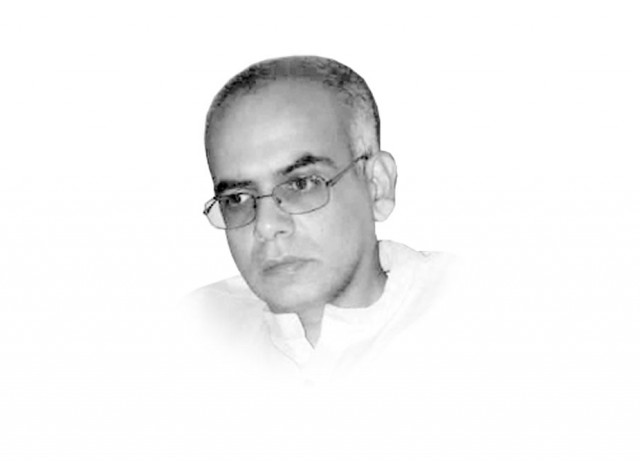Pakistan shining?
Our leaders must pay more attention to the plight of the common man and woman

The writer is a development anthropologist currently based in Fairfax, Virginia, and teaches at Georgetown and George Washington universities
Our current political leaders seemed to have borrowed our neighbour’s playbook on campaigning for elections, where politicians have been appealing to voters by pitching the ‘India shining’ campaign since over a decade. Although the ‘India shining’ campaign has been appropriated by both the BJP and the Congress, and produced varied results, the claim itself remains dubious given the ground realities within the country, especially for the common man.
In the case of Pakistan as well, the task of current political leaders to portray Pakistan as an emerging economic power receives a boost every time there is mention of its bourgeoning middle class, or a reassessment of its overall economic performance. Yet, the fact of the matter remains that despite these glittering assessments, Pakistan is yet a long way away from charting a sustainable path to economic and social development.
Despite being recently described as ‘the most underrated economy in the world’ by Bloomberg, for example, the fact remains that Pakistan is still ranked at 147th in terms of its Human Development Index, as per the latest UNDP assessment. And, despite all its recent accomplishments, Pakistan’s HDI ranking is 12 ranks lower than in 2000.
While our leadership may have set its sights on making Pakistan a vital link in the ‘new Silk Road’, the fact of the matter remains that our basic social indicators like infant mortality and primary and secondary enrollment are among the worst in the world. The number of out-of-school children in Pakistan is dismal, as is the quality of education being imparted to those who are attending school. Relative to countries of similar or lower its income level, Pakistan has systematically underperformed on most human development indicators.
Besides lacklustre health and education accomplishments, we, as a country, are also structurally biased against half the national population, which is female. Our female HDI value stands at 0.452 while the male HDI value stands at 0.610. An even larger gap is seen in the labour force participation rate where on average less than 25 per cent women are employed in contrast to an average of over 82 per cent of men. A mere 3 per cent of our legislators, senior officials and managers are women, and women hold only 20 per cent seats in parliament. This situation also does not bode well for making Pakistan a more progressive and prosperous country.
Our current HDI ranking still places Pakistan in the ‘medium human development’ bracket, which also includes India, Bangladesh, Bhutan, Kenya, Myanmar and Nepal. Yet, we are the last country to fall in this ‘medium human development’ group.
The current HDI ranking does not provide detailed information on regional disparities within the country, but there are other indicators which reveal that our national growth is also very lopsided and inter-regional, as well as intra-regional, disparities remain a serious problem. Yet, the gap between the haves and have-nots continue to grow due to structural biases which continue to marginalise and exploit already vulnerable communities and groups of people.
Our leaders must pay more attention to the plight of the common man and woman, and pay more attention to fulfilling their needs, instead of focusing on glittering projects such as metro rails or motorways. Otherwise, we will simply not have the required human capital which is needed to sustain economic growth in the long run, no matter how many infrastructure or energy projects are ushered into the country.
Published in The Express Tribune, May 26th, 2017.
Like Opinion & Editorial on Facebook, follow @ETOpEd on Twitter to receive all updates on all our daily pieces.
















COMMENTS
Comments are moderated and generally will be posted if they are on-topic and not abusive.
For more information, please see our Comments FAQ